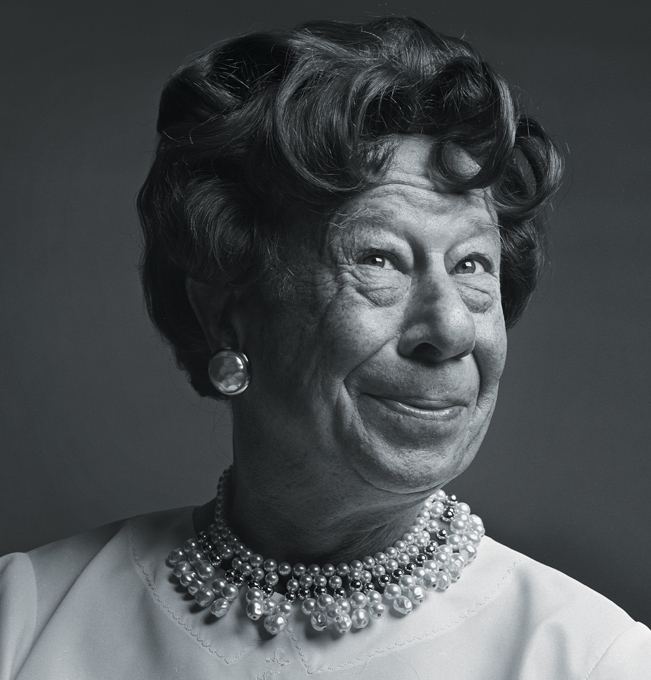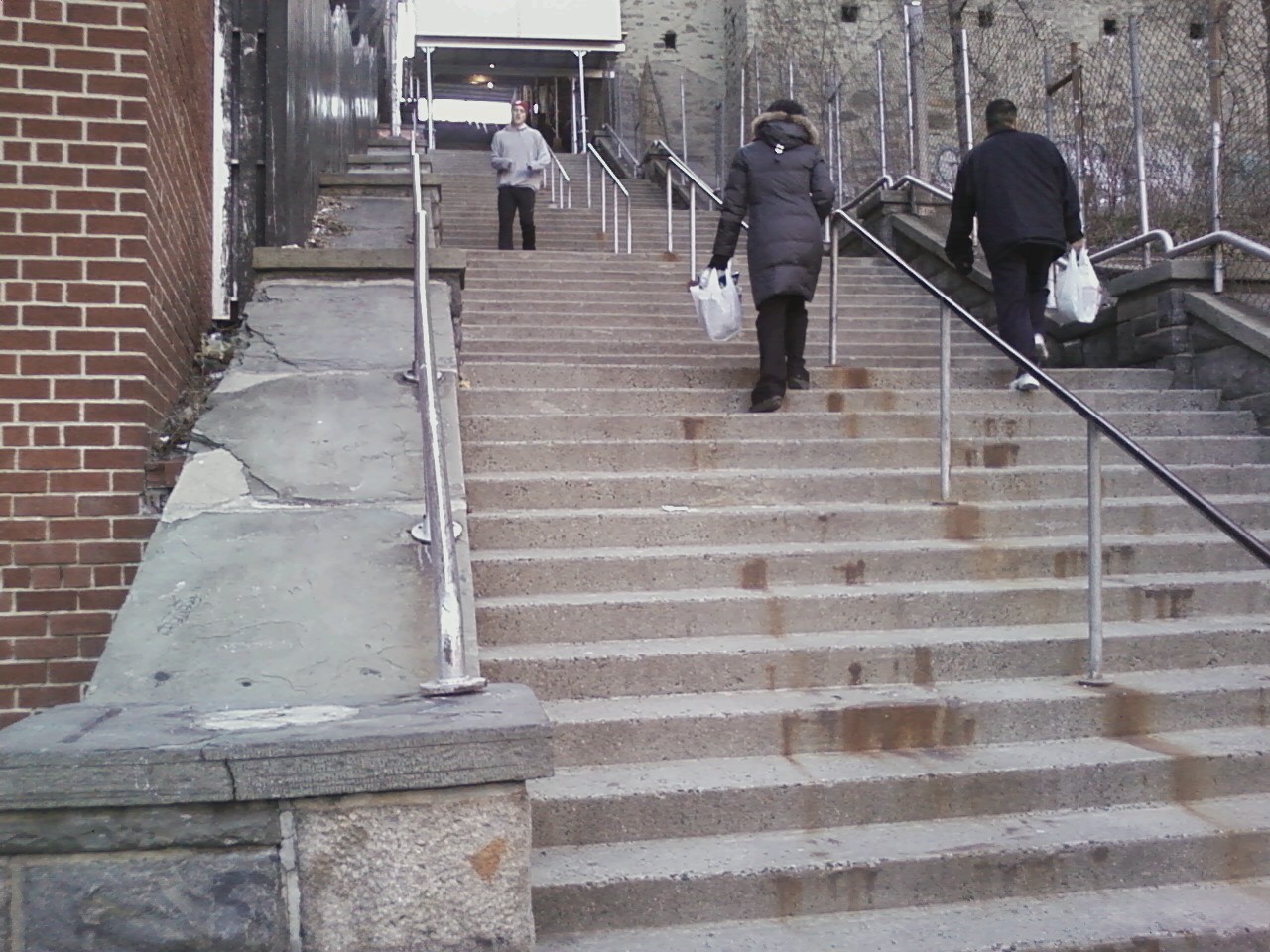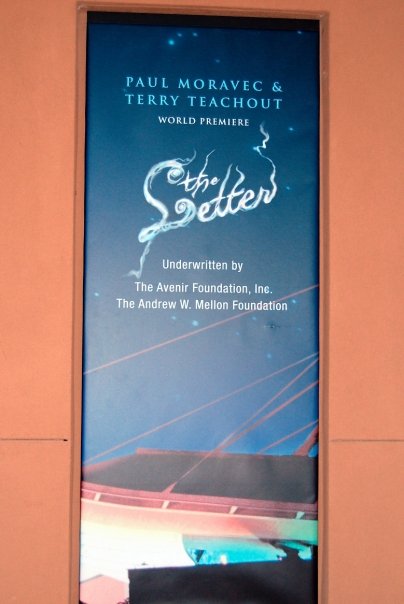“If A is a success in life, then A equals x plus y plus z. Work is x; y is play; and z is keeping your mouth shut.”
Albert Einstein (quoted in the Observer, Jan. 15, 1950)
Archives for 2011
TT: So you want to get reviewed
Now that theater companies are starting to announce their 2011-12 seasons, it’s time for a newly revised repeat performance of this perennial posting. (I’ve already finished booking my travel through the end of August, so don’t bother getting in touch with me about summer shows.) If you’ve seen it before and aren’t interested, my apologies!
* * *
If you read the Friday Wall Street Journal or this blog with any regularity, you probably know that I’m the only drama critic in America who routinely covers theatrical productions from coast to coast. Don’t take my word for it, though. Ask Howard Sherman of the American Theatre Wing, who blogged as follows earlier this year:
To get a regional show to Broadway, one must find a producer who wants to champion the show and take it on as a major commitment. Unfortunately, producers aren’t flying to theatres around the country constantly checking out every possible new play and revival for their next Broadway success. And unless you’re in a major city and you have a preponderance of positive reviews by long established critics (whose numbers are in decline), your own entreaties aren’t likely to cause anyone to jump on a plane unless you already have a relationship with them.
As for “national press” discovering your work and bringing it to the attention of New York bound producers, your only real option is luring The Wall Street Journal‘s Terry Teachout to see your show (and Terry regularly publishes his guidelines for what he’s likely to be interested in). While The New York Times ventures out of town on occasion (though most frequently to the Berkshires, Chicago or London, it seems), it’s rare even for the country’s largest newspaper, USA Today, to see work outside of New York; attention from television and radio is even rarer.
So what if you run a company I haven’t visited? How might you lure me to come see you for the first time? Now’s the time to start asking that question, because I’m just starting to work on my reviewing calendar for the fall of 2011. Here, then, are the guidelines that I use for deciding which out-of-town shows to see, along with some suggestions for improving the ways in which you reach out to the press:
• Get your 2011-12 schedule to me as soon as possible. That means, if possible, prior to the public announcement. I’ll keep it to myself.
• Basic requirements. I only review professional companies. I don’t review dinner theater, and it’s very unusual for me to visit children’s theaters. (Sorry, but I have to draw the line somewhere.) I’m somewhat more likely to review Equity productions, but that’s not a hard-and-fast rule, and I’m strongly interested in small companies.
• You must produce a minimum of three shows each season—and two of them have to be serious. I won’t put you on my drop-dead list for milking the occasional cash cow, but if The 39 Steps is your idea of a daring new play, I won’t go out of my way to come calling on you, either.
• I have no geographical prejudices. On the contrary, I love to range far afield, particularly to states that I haven’t yet gotten around to visiting in my capacity as America’s drama critic. Right now Alaska and Colorado loom largest, but if you’re doing something exciting in (say) Mississippi or Montana, I’d be more than happy to add you to the list as well.
• Repertory is everything. I won’t visit an out-of-town company that I’ve never seen to review a play by an author of whom I’ve never heard. What I look for is an imaginative mix of revivals of major plays—including comedies—and newer works by living playwrights and songwriters whose work I’ve admired. Some names on the latter list: Alan Ayckbourn, Brooke Berman, Nilo Cruz, Liz Flahive, Brian Friel, Athol Fugard, John Guare, Adam Guettel, David Ives, Michael John LaChiusa, Kenneth Lonergan, Lisa Loomer, David Mamet, Martin McDonagh, Conor McPherson, Itamar Moses, Lynn Nottage, Peter Shaffer, Stephen Sondheim, and Tom Stoppard.
 I also have a select list of older shows I’d like to review that haven’t been revived in New York lately (or ever). If you’re doing The Beauty Part, The Entertainer, Hotel Paradiso, The Iceman Cometh, Loot, Man and Superman, No Time for Comedy, Rhinoceros, The Skin of Our Teeth, or just about anything by Jean Anouilh, Bertolt Brecht, T.S. Eliot, Horton Foote, William Inge, or Terence Rattigan, kindly drop me a line.
I also have a select list of older shows I’d like to review that haven’t been revived in New York lately (or ever). If you’re doing The Beauty Part, The Entertainer, Hotel Paradiso, The Iceman Cometh, Loot, Man and Superman, No Time for Comedy, Rhinoceros, The Skin of Our Teeth, or just about anything by Jean Anouilh, Bertolt Brecht, T.S. Eliot, Horton Foote, William Inge, or Terence Rattigan, kindly drop me a line.
Finally, I’m very specifically interested in seeing large-cast plays that no longer get performed in New York for budgetary reasons.
• BTDT. I almost never cover regional productions of new or newish plays that I reviewed in New York in the past season or two—especially if I panned them. Hence the chances of my coming to see your production of Good People are well below zero. (Suggestion: if you’re not already reading my Journal column, you might want to start.)
In addition, there are shows that I like but have written about more than once in the past few seasons and thus am not likely to seek out again for the next few seasons. Some cases in point: American Buffalo, Arcadia, Awake and Sing!, Biography, Blithe Spirit, Dividing the Estate, Endgame, A Funny Thing Happened on the Way to the Forum, The Glass Menagerie, Into the Woods, Life of Galileo, The Little Foxes, A Little Night Music, A Moon for the Misbegotten, Mrs. Warren’s Profession, Our Town, Private Lives, Speed-the-Plow, Twelve Angry Men, Waiting for Godot, West Side Story, and Who’s Afraid of Virginia Woolf? (I am, however, going to keep on reviewing What the Butler Saw until somebody gets it right!)
• I group my shots. It isn’t cost-effective for me to fly halfway across the country to review a single show. Whenever possible, I like to take in two or three different productions during a four- or five-day trip. (Bear in mind, though, that they don’t all have to be in the same city.) If you’re the publicist of the Lower Slobbovia Repertory Company and you want me to review your revival of Guys and Dolls, your best bet is to point out that TheaterSlobbovia also happens to be doing Separate Tables that same weekend. Otherwise, I’ll probably go to Chicago instead.
• I don’t travel in the spring. Broadway is usually so busy in March and April that I’m not able to go anywhere else to see anything else. If you’re going to put on a show that you think might catch my eye, consider doing it between September and February.
• Web sites matter. A lot. A clean-looking home page that conveys a maximum of information with a minimum of clutter tells me that you know what you’re doing, thus increasing the likelihood that I’ll come see you. An unprofessional-looking, illogically organized home page suggests the opposite. (If you can’t spell, hire a proofreader.) This doesn’t mean I won’t consider reviewing you—I know appearances can be deceiving—but bad design is a needless obstacle to your being taken seriously by other online visitors.
If you want to keep traveling critics happy, make very sure that the front page of your Web site contains the following easy-to-find information and features:
(1) The title of your current production, plus its opening and closing dates.
(2) Your address and main telephone number (not the box office!).
(3) A SEASON or NOW PLAYING button that leads directly to a complete list of the rest of the current and/or upcoming season’s productions. Make sure that this listing includes the press opening date of each production!
(4) A CALENDAR or SCHEDULE button that leads to a month-by-month calendar of all your performances, including curtain times.
(5) A CONTACT US button that leads to an updated directory of staff members (including individual e-mail addresses, starting with the address of your press representative).
(6) A DIRECTIONS or VISIT US button that leads to a page containing directions to your theater and a printable map of the area. Like many people, I rely on my GPS unit when driving, so it is essential that this page also include the street address of the theater where you perform. Failure to conspicuously display this address is a hanging offense. (I also suggest that you include a list of recommended restaurants and hotels that are close to the theater.)
This is an example of a good company with an attractive, well-organized Web site on which most of the above information is easy to find.
• Please omit paper. I strongly prefer to receive press releases via e-mail, and I don’t want to receive routine Joe-Blow-is-now-our-assistant-stage-manager announcements via any means whatsoever.
• Write to me here. Mail sent to me at my Wall Street Journal e-mail address invariably gets lost in the flood of random press releases. As a result, I no longer recommend that anyone write to me there. I get a lot of spam at my “About Last Night” mailbox, too, but not nearly as much as I do at the Journal. Any e-mail sent to me at the Journal that contains attachments will be discarded unread.
(Really smart publicists will know how to find out my personal e-mail address, and will use it instead of writing to me here.)
Finally:
• Mention this posting. I’ve come to see shows solely because publicists who read my blog wrote to tell me that their companies were doing a specific show that they had good reason to think might interest me. Go thou and do likewise.
TT: Almanac
“Why be a man when you can be a success?”
Bertolt Brecht, A Man’s a Man (trans. Eric Bentley)
TT: How to succeed on Broadway
Finally, a rave: I review How to Succeed in Business Without Really Trying in Tuesday’s Wall Street Journal, rapturously. This piece went up on the paper’s Web site a couple of minutes ago, so I’ve decided to go ahead and publish it here as well. Here’s a excerpt.
* * *
The professionals are back. Well into one of the dimmest Broadway seasons in recent memory, Rob Ashford has lit the lights with a smart and satisfying production of “How to Succeed in Business Without Really Trying,” the Frank Loesser-Abe Burrows musical that taught a generation of viperine office politicians how to stick a shiv into their bosses without leaving any fingerprints on the handle. Needless to say, it’s Daniel Radcliffe, better known as Harry Potter, who’s filling the seats, but it’s Mr. Ashford who deserves most of the credit for the artistic success of this hard-charging, high-flying revival of a show whose gleaming craftsmanship is as self-evident today as when it opened on Broadway a half-century ago.
Surely little need be said about the oft-celebrated virtues of “How to Succeed.” For openers, it features a perfect score by Loesser in which every song pushes the action along briskly. Burrows, who also collaborated with Loesser on “Guys and Dolls,” another entry on the short list of all-time great musicals, was primarily responsible for the book, which is put together with immaculate skill. And that brings us back to Mr. Ashford, who with “How to Succeed” establishes himself as one of the best comic choreographers on Broadway today. Not only are his dances full of perfectly realized visual punchlines, but they have an exhilarating momentum that serves the show without overwhelming the plot. Each number builds on its predecessor until you want to stand up and yell with delight–which, at show’s end, is what you’ll do….
 Of course you’ll be wanting to know all about Mr. Radcliffe, and the answer is that he’s a pretty good singer and an unexpectedly good dancer. His small voice is plaintive, well-tuned and rather sweet, which puts a fresh spin on the familiar character of J. Pierrepont Finch, who ascends from the mailroom to the boardroom with vertiginous speed. Mr. Radcliffe’s Finch is a twinkly, huggable gent whose ruthless unscrupulosity is positively endearing.
Of course you’ll be wanting to know all about Mr. Radcliffe, and the answer is that he’s a pretty good singer and an unexpectedly good dancer. His small voice is plaintive, well-tuned and rather sweet, which puts a fresh spin on the familiar character of J. Pierrepont Finch, who ascends from the mailroom to the boardroom with vertiginous speed. Mr. Radcliffe’s Finch is a twinkly, huggable gent whose ruthless unscrupulosity is positively endearing.
The only problem with this approach is that Mr. Radcliffe doesn’t have the vocal firepower needed to put his big number, “I Believe in You,” all the way across the footlights, which causes the second act to sag briefly in the middle. But not to worry, for Mr. Ashford’s staging of “Brotherhood of Man” is so propulsive that the energy level soars again, and Mr. Radcliffe is on top (literally) of every step. No, he’s not Robert Morse, who created the role on Broadway, then filmed it in 1967. But who is–and so what?…
* * *
Read the whole thing here.
Robert Morse sings “I Believe in You” in the 1967 film version of How to Succeed in Business Without Really Trying:
TT: Thanks a million
I nearly deleted this piece of blogmail because the subject header looked like spam. Something made me hesitate and open it up, and this is what it said:
I am the recipient of many undeserved blessings. You are one of them. I only met you once in person at the book signing [for Pops] in New Orleans. Yet I meet you every day on your blog. Thanks.
To you as well, sir–and to everyone else who reads “About Last Night.” Your collective presence is a daily pleasure.
TT: New leaf
 I walk up these one hundred and twenty-eight steps nearly every day when I’m in Manhattan. They are the climax of my daily walk, which takes me past Bennett Park, the highest natural point on the island of Manhattan, down to the bustling Dominican enclave that surrounds 181st Street, over to a side street called Overlook Terrace, and up the long, long staircase that leads to Hudson Heights, my new neighborhood. I usually spend a half-hour on this hilly circuit, a pretty fair chunk of walking for a middle-aged man who, left to his own devices, would probably get next to no exercise at all.
I walk up these one hundred and twenty-eight steps nearly every day when I’m in Manhattan. They are the climax of my daily walk, which takes me past Bennett Park, the highest natural point on the island of Manhattan, down to the bustling Dominican enclave that surrounds 181st Street, over to a side street called Overlook Terrace, and up the long, long staircase that leads to Hudson Heights, my new neighborhood. I usually spend a half-hour on this hilly circuit, a pretty fair chunk of walking for a middle-aged man who, left to his own devices, would probably get next to no exercise at all.
Why do I do it? Because Mrs. T and my doctor want me to, and because I share their feeling that the world is a better place with me in it. Would that physical exercise came more naturally to me, but it never has, partly because I’m clumsy (a typical by-product of lifelong left-handedness) and partly because I was always the sort of kid who preferred reading or practicing piano to playing in the street. As a result, I weigh too much and have hypertension, for which I take an assortment of pills twice a day and strive to eat more austerely. Nearly dying five years ago fired my resolve to take care of myself, and getting married sealed the deal…or so I thought. But the summer and fall of 2009 were so hectic, what with the premiere of The Letter and the publication of Pops, that I fell off the wagon of self-maintenance, and by last fall I was out of shape and feeling the consequences.
The good news is that moving to Hudson Heights, perhaps not surprisingly, has inspired me to straighten up and fly right again. No, I don’t like it, and somehow I doubt I ever will. But I do like exploring my new neighborhood very much, and I also like the thought of living longer. I have books and operas and plays to write, and I also have a wife who, for reasons of her own, enjoys my company and would prefer not to be deprived of it unexpectedly.
So now I’m eating smarter, getting smaller, and trudging up that 128-step staircase once a day, and maybe one day I’ll learn to like it. Probably not, though.
UPDATE: I got a clean bill of health from the doctor this morning. Then I trudged back up the hill again….
TT: The Letter is back
 Paul Moravec and I aren’t so busy prepping for the world premiere of Danse Russe that we’ve forgotten about our first opera. The New School is putting on an arts festival called Noir, and The Letter is very much a part of it.
Paul Moravec and I aren’t so busy prepping for the world premiere of Danse Russe that we’ve forgotten about our first opera. The New School is putting on an arts festival called Noir, and The Letter is very much a part of it.
Quoth the press release:
The theme of our first arts festival is Noir, a cinematic style of shadowy expressiveness that had its heyday in the 1930s and 1940s. Coined by a French critic in 1946, the term film noir refers to movies depicting a morally ambiguous world of cynical private eyes, lonely gangsters, and femme fatales. Since then, the influence of noir has been felt in areas ranging from fashion design to fine art, graphic art to fiction, suggesting the alienation and disorientation of modernism through stark silhouettes, sexual frankness, stylized emotion, and the absence of sentimentality. Join The New School community in an exploration of noir in a festival of iconic films, hard-boiled storytelling, graphic art, and illustration inspired by this uniquely 20th century style.
That’s right up our alley, The Letter being what Paul has called an “opera noir,” and so we’re taking part in the festival, which will also feature appearances and presentations by such interesting folk as Mary Gaitskill, Molly Haskell, Todd Haynes, Ben Katchor, Greil Marcus, Frances McDormand, and Luc Sante.
For our part, Paul and I will be presenting and discussing excerpts–both live and on video–from The Letter at 7:30 p.m. on Thursday, April 7. Our joint appearance will take place in the New School’s Arnhold Hall, which is at 55 W. 13th St. in Manhattan.
Admission to this and other festival events is free, but seating is limited and you must make an advance reservation to get in. To do so, or for more information about the festival, go here.
TT: At it again
In case you haven’t noticed, there’s new stuff in the right-hand column. Take a gander when you get a chance.
